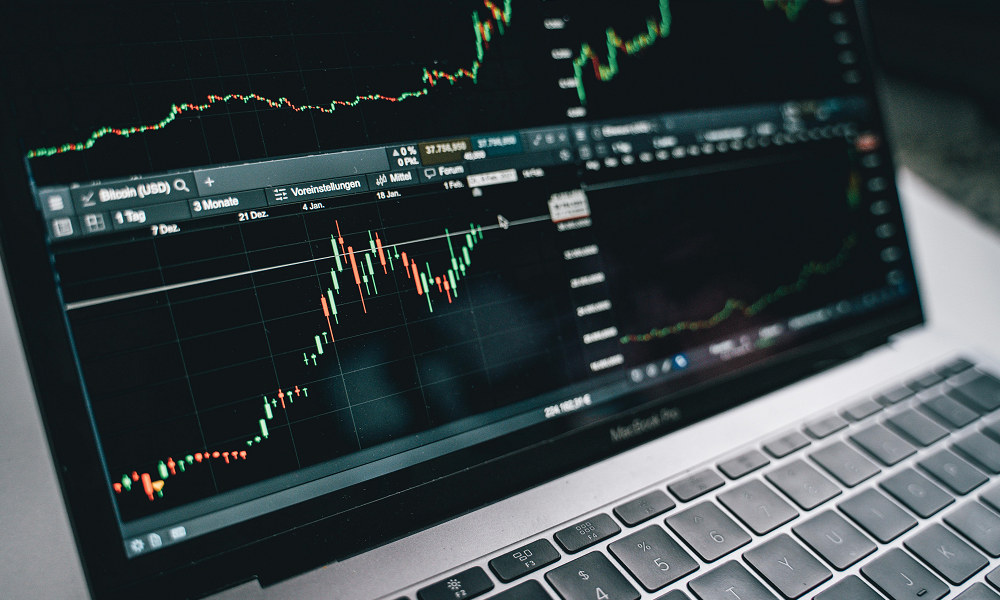Reviews
How Liquidity Works in Forex Trading: Understanding Market Depth

FX trading is one of the most dynamic financial markets. With trillions of dollars exchanged daily, understanding how liquidity works is crucial. Liquidity means how fast and easy it is to buy or sell a currency pair. The higher the liquidity, the faster trades can be executed, usually with minimal price movement.
For traders, liquidity is vital because it affects pricing, trading speed, and the overall success of trades. Market depth, or the ability to handle large orders without significant price changes, plays a big role in this. Let’s explore how liquidity functions in forex trading and why it matters to both beginners and experienced traders alike.
What is Liquidity in Trading?
It indicates how effortlessly currency pairs can be bought or sold. It reflects the availability of buyers and sellers in the market. High liquidity means many participants are ready to trade, leading to tighter spreads and smoother transactions. On the other hand, low liquidity can result in wider spreads and higher trading costs. Understanding this helps traders plan their strategies more effectively.
The Role of Market Makers
Market makers are key players in ensuring cash flow in the forex market. They provide continuous bids and offers for currency pairs, which helps maintain a fluid market environment. By doing so, they reduce the risk of large price gaps and allow trades to be executed quickly.
Market makers make profits through the spread between the bid and ask prices. Their presence is essential for keeping the market active, even during periods of low trading activity.
Liquidity Providers and Their Influence
Liquidity providers like financial institutions supply the market with the necessary capital to facilitate trades. These entities contribute by offering large volumes of currency, which enhances overall market liquidity.
Their involvement ensures that even substantial trades can be executed without significantly impacting market prices. The more liquidity providers in the market, the more stable the forex environment becomes.
The Importance of Bid-Ask Spreads
The bid-ask spread indicates market fluidity. A narrower spread typically suggests high liquidity, meaning that the market is efficient, and trading costs are lower. Conversely, a wider spread often points to lower convertibility, where dealings may be costlier and slower. Traders should always monitor the spread before entering a trade, as it can greatly affect profitability.
The Role of Trading Volume
Trading volume directly impacts liquidity. A higher trading volume indicates that more transactions are taking place, which usually corresponds to greater fluidity. When volumes are high, it becomes easier to enter and exit positions. Moreover, you can do this without causing significant price shifts. Conversely, low volumes can lead to higher volatility and reduced fluidity, making it challenging to trade large amounts.
Impact of Economic Events
Economic events like interest rate decisions can have a significant influence on the convertibility in the forex market. During major news releases, it can fluctuate rapidly, leading to sudden price changes. Traders should be aware of the economic calendar and be prepared for potential shifts. Understanding how these events affect fluidity can help traders manage risk effectively.
Understanding Traps and Their Risks
Traps occur when a market experiences low cash flow, leading to difficulties in executing trades without causing significant price movements. These traps can result in unexpected losses, especially in volatile markets. Traders must recognize the signs of a trap and avoid placing large orders in such conditions. Careful analysis and strategic planning help in dealing with these risky situations.
Strategies for Trading in Low Conditions
Trading in low conditions requires special strategies. It is better for traders to consider using limit orders instead of market orders. Doing so will help them avoid slippage.
It’s also wise to trade during peak market hours when fluidity tends to be higher. Another approach is to focus on major currency pairs, which generally have more cash flow compared to exotic pairs. By adapting strategies to the environment, traders can protect their capital and improve trading outcomes.
How Forex Brokers Facilitate Access
Forex brokers provide access to ease of trading. They connect traders with providers, ensuring that trades can be executed efficiently. Many brokers offer platforms that aggregate fluidity from multiple sources, giving traders the best available prices.
They also help manage the risks associated with low cash flow by offering tools and features like stop-loss orders and margin trading. Choosing a reliable broker is crucial for accessing the marketability needed for successful FX trading.
Liquidity is a vital component of forex trading. It affects everything from the ease of entering and exiting trades to the cost of trading itself. Understanding how it works, the role of market participants, and how economic factors influence it can greatly improve trading strategies. Whether you’re a beginner or an experienced trader, keeping an eye on it and adapting your approach accordingly will help you succeed in the forex market.

-

 Legal6 days ago
Legal6 days agoMichigan man JD Vance sentenced to 2 years for threatening Trump and JD Vance
-

 Politics1 week ago
Politics1 week agoU.S. to designate Maduro-linked Cartel de los Soles as terrorist organization
-

 Health7 days ago
Health7 days agoCambodia reports fatal H5N1 bird flu case in 22-year-old man
-

 World4 days ago
World4 days agoHurricane Melissa registered 252 mph wind gust, breaking global record
-

 Legal4 days ago
Legal4 days agoWoman in critical condition after being set on fire on Chicago train
-

 Politics7 days ago
Politics7 days agoEpstein survivors release PSA calling on Congress to release all files
-

 Legal4 days ago
Legal4 days ago1 dead, 2 injured in shooting at Dallas Walmart parking lot
-

 Legal3 days ago
Legal3 days agoSuspect in San Diego stabbing shot by authorities after fleeing into Mexico




